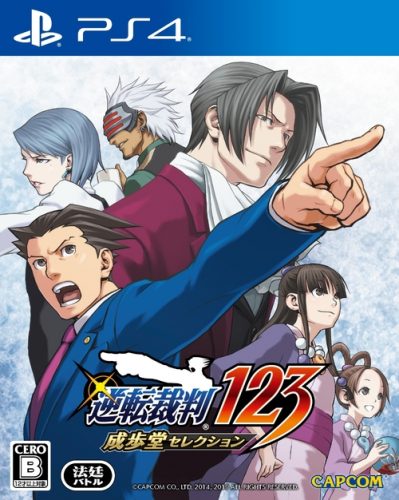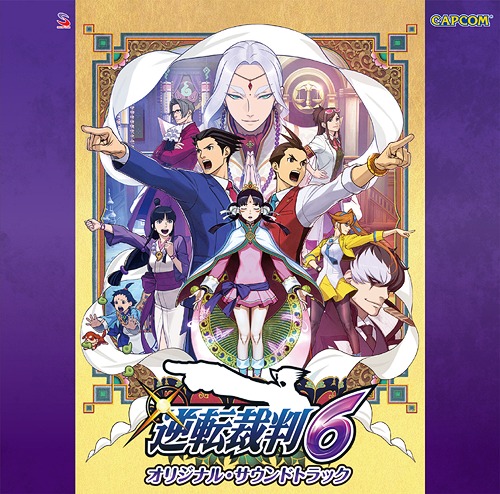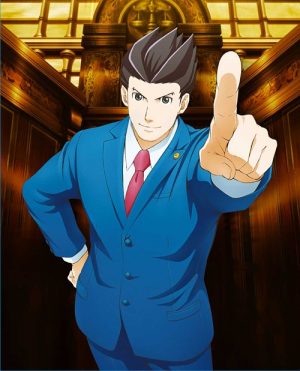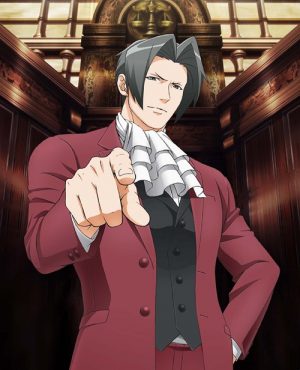
For the past decade, Capcom’s Ace Attorney, or Gyakuten Saiban in Japan, has been one of their biggest sleeper hits. It helped popularize the visual novel outside of Japan, and its first three games have presently been adapted into an anime. For those not familiar with the franchise, it is a legal thriller where you take the role of Phoenix Wright, a defense attorney who defends clients who are accused of serious crimes such as murder. Thanks to exploiting contradictions between testimonies and the evidence he has available to him, Phoenix Wright can get to the bottom of the truth. For today’s article, we would like to explore why Ace Attorney portrays the legal system both good and bad ways.
Before we start, we would like to disclaim that none of our staff (at least none to our knowledge) at Honey are licensed attorneys nor are they officers of the court. All information provided is pretty much based on the anime, and basic research in regards to mostly the US and Japanese court systems.
Judge, Defense, and Prosecution
If there is one thing that this series does well, it introduces the basics of who’s who in the legal system. You have the defendant and their defense team, the prosecution, and the judge. As a defense attorney (which is indicated on a badge he wears on the button hole of his suit, which comes from Japanese customs), Phoenix’s role is to prove that the defendant is not guilty under the charges they have brought against them, and the prosecution, which is the role that Miles Edgeworth, Godot, and Franziska von Karma serve as, have to prove guilt.
The role of the judge in Ace Attorney and in real life is to maintain order in the court and determine if a defendant is guilty or not guilty. Though the US court systems have trial by juries, Japan didn’t get around to having a jury system until 2010, and when the first three games were released on the Game Boy Advance in the early part of its life, Japan was still using judges as part of its system (in real life, they would use a panel of judges). But a jury system was introduced in the fourth game after the system was introduced in Japan.
How Evidence Is Presented and Discovered
If you’ve seen the 1992 classic My Cousin Vinny, you probably remember Marisa Tomei schooling Joe Pesci as Vinny in regards to discovery, where the prosecution legally has to share evidence with the defense or it could lead to a mistrial. In Ace Attorney, that does not seem to be the case when the prosecution tends to submit evidence at the last minute without the defense to review (in the American court systems, the defense has the right to get evidence or confessions removed if obtained improperly). Considering the nature of the original game, you cannot get a mistrial, so you have to deal with the cards handed to you to get a guilty or not guilty verdict. Unfortunately, we are unable to confirm if the concepts of mistrials exist in the Japanese system since they have a 99.8% conviction rate.
However, when you start each case, you are provided a handful of pre-existing evidence and can use it during testimonies. In the original game, if a witness says for example he made a call at 5pm, you can use phone records that he really called at lets say 7. Just like in a real trial, lawyers use evidence to make their case but Ace Attorney portrays it in a reasonably condensed way for viewers/players to follow, but by no means realistic.
Courtroom Behavior
If you have played the games or watched the anime, then you have seen witnesses and the prosecution act in vary malicious manners if they feel they are being offended. Of course this is meant to be for comedic effect, but in real life, if a witness loses it on the stand, it is within the responsibility of whoever called in the witness to calm them down, or else the judge will remove them from the stand and have their evidence entirely stricken from the record! Not once do we see the judge make any warnings of this whenever an witness acts crazy throughout the series.
With Franziska, she does use her whip a lot and if you have been to a courtroom, only a bailiff (which are not present in the anime or games) or any security on staff are allowed to have any kind of weapons in the courthouse. Obviously, that means Franziska should not have her whip in the courtroom and any resistance on her part could have her removed from the court. There are moments she freaks out at Phoenix and the Judge when she goes crazy with it, when in fact, she should be removed immediately. In some instances, her antics could jeopardize the prosecution’s case and lead to a mistrial in the system of some countries!
Final Thoughts

Last, we are aware that there are some spiritual elements that do come into play in the game and anime, such as Mia, the spirit of Phoenix’s mentor, possessing the body of Maya and/or Pearl from time-to-time to give him support. That should be an obvious given as to why Ace Attorney is collectively not a good representation of the legal system. It minimally does a good job of showing you the basics of the main roles of who the officers of the court are, but the conduct and presentation is a by no means a true depiction of how you should act and use evidence.
Recommended Post
6 Anime Like Phoenix Wright: Ace Attorney [Recommendations]
Recommended Post
Phoenix Wright: Ace Attorney - Anime Spring 2016
Recommended Post



